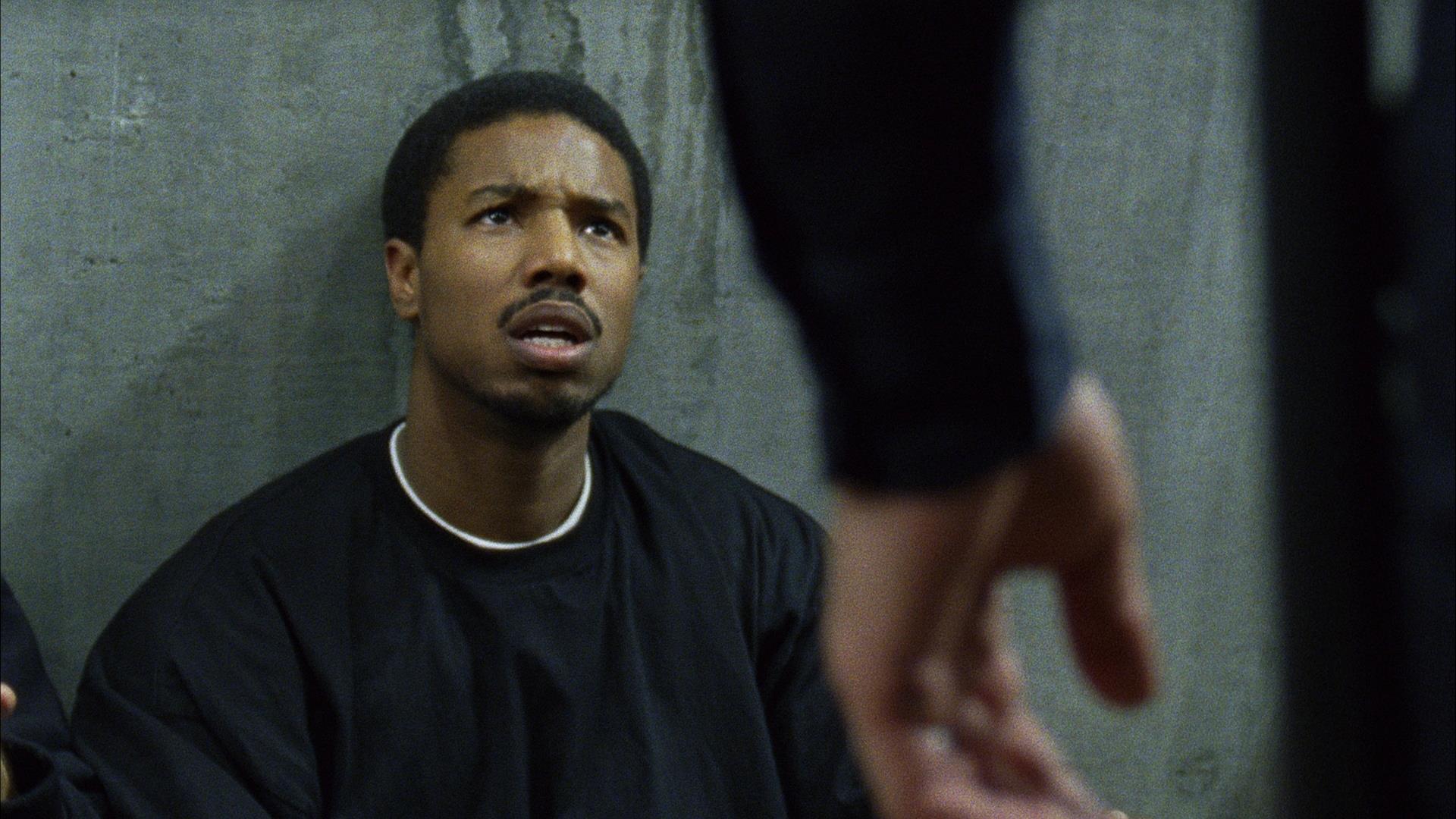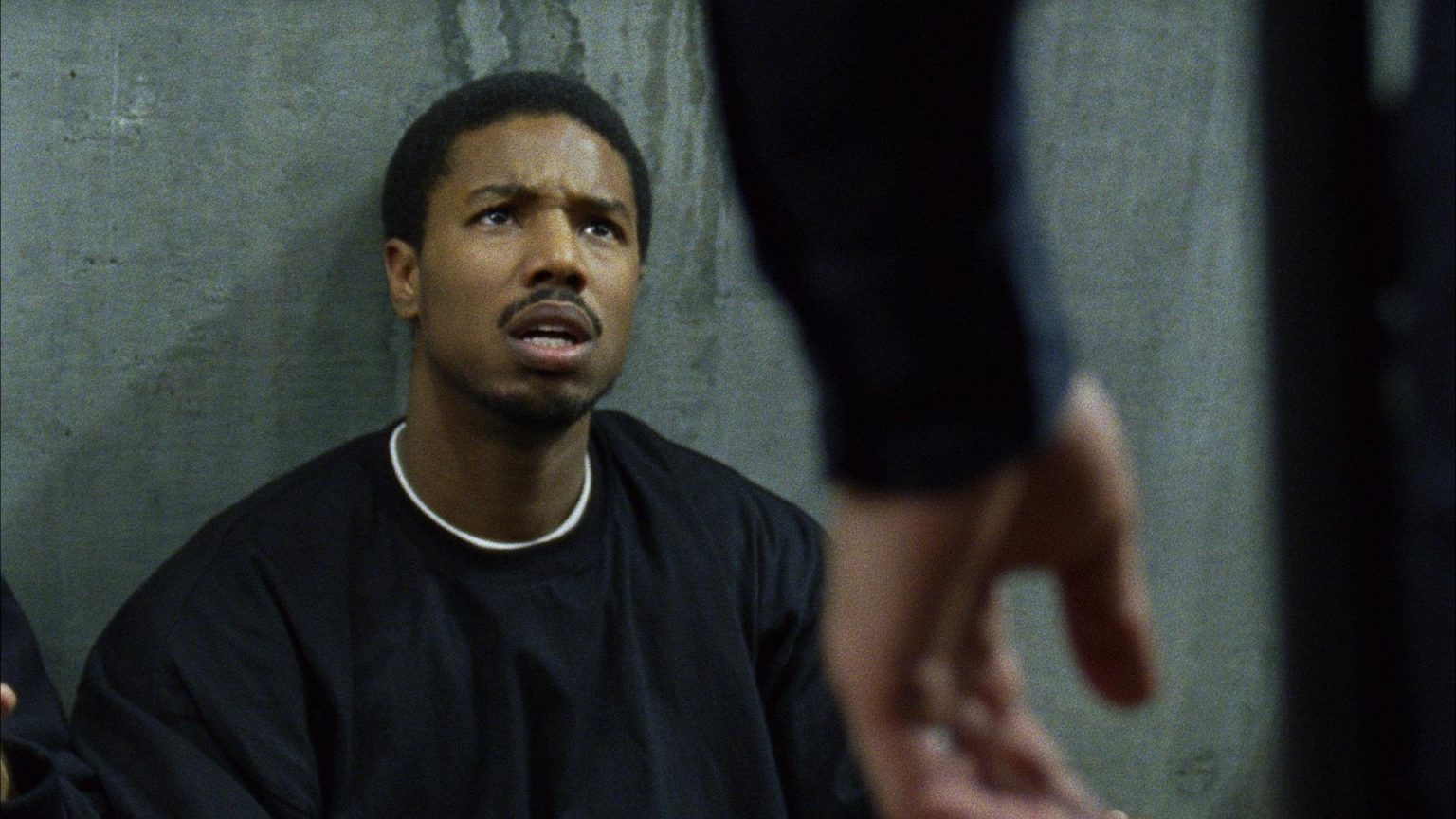Before Michael Brown and Trayvon Martin, before Oscar Grant and Amadou Diallo, there was Frederic Otomo, an immigrant from Cameroon who was killed by police in the German city of Stuttgart twenty-five years ago this month. The year 1989 was a tense one for race relations: A Miami policeman’s fatal shooting of a black motorcyclist ignited three days of rioting; a white female runner was raped in New York by an allegedly dark-skinned man, which lead to the wrongful arrest of five black and Latino teenagers dubbed “the Central Park Five;” and a sixteen-year-old boy named Yusef Hawkins was killed in Bensonhurst by gang of white youths. Against this backdrop of real-life horrors, Spike Lee’s Do the Right Thing was released in theaters, further spreading a wave of racial paranoia.
Like the recent spate of police killings of young black men, the case of Otomo, recounted and made visceral in a 1999 film starring actor Isaach de Bankole (Ghost Dog) simply titled Otomo, is fraught with the ambiguities and complexities of race relations and power hierarchies between whites and blacks in developed Western societies. Though the incident took place more than two decades ago, it sparks the same recurring questions that we hear being repeated today in Ferguson, Missouri: Was the black victim armed? Did he resist arrest? Did he react violently? And if any of the answers are affirmative, does that justify the police officers’ fatal use of force?
First-time feature director Frieder Schlaich, who had previously worked in nonfiction, had originally planned to make a documentary about Otomo, but was unable to find any new information about the circumstances surrounding his death. The film version of Otomo, then, imagines the events that transpired between two known factual events: a morning altercation on a subway train between Otomo and a ticket-checker and multiple mortalities that occurred later, on a Stuttgart bridge, including not only Otomo, but also two policemen.
In between, Schlaich paints a portrait of the modern city that is divided by rampant racism and xenophobia on one hand, and tolerance on the other. Nearly every scene alternates between the two poles. When Otomo tries to get a low-paying job among a pool of disenfranchised men, the hiring manager insults his shoes and the bureaucrat in charge rejects his paperwork—while his prospective employer promises him a new pair of footwear. Later, Otomo, on the run, seeks brief refuge in a coffee shop; a barking dog and suspicious stares first suggest that Otomo has entered another oppressive space, but the scene ultimately upends our expectations.
A concise and trim social critique, running at only seventy minutes, the film has a meaty mid-sequence involving the kindness of another stranger, a middle-aged woman who manages to tamp down Otomo’s aggressiveness—desperate, he initially tries to shake her down for money—and bring him back to her modest home. Turns out, in a Fassbinder-like scene of tenderness between the strapping African immigrant and the round German woman, she likes African dance, and in a brief break from the film’s underlying sense of tension, the twosome engages in some traditional African moves.
Such scenes contrast with the film’s fatalistic structure, which cross-cuts between Otomo’s journey and the two policemen—one, a dorky youth who raps, the other, an Aryan ideal with a sensitive streak—who are hunting him down like an animal.

Like Fruitvale Station, the recent award-winning account of the killing of Oscar Grant on San Francisco’s mass transit service, there is an inexorable quality to Otomo’s narrative arc—a fateful conclusion that audiences know will end in bloodshed and tragedy. But unlike Fruitvale’s heart-string-pulling finale, with its torrent of tears and screams, Otomo’s fate comes with little melodrama or cathartic outpouring. It’s as swift as it is inevitable. If Fruitvale tells a rousing tale of injustice, trying to rally its audience through emotion, Otomo functions more as a scathing societal critique, leaving viewers in a state of unease and uncertainty. It is never exactly clear what happened.
By all accounts, Otomo was carrying a knife, hidden in a newspaper, which he used to stab two policemen. As the film envisions the melee, Otomo strikes out randomly against a slew of increasingly aggressive police officers. But Schlaich refuses to judge Otomo’s aggressive actions throughout the film. From head-butting the subway ticket-taker to his knife-wielding attempts to escape at the film’s climax, Otomo is seen as reactive, a good Catholic man who is pushed to dangerous extremes by being relentlessly beaten down.
This rendering of the event may be controversial—and it’s certainly more complicated than recent real-life incidents, in which these young black men were killed for nothing more than wearing a hoodie at night or pushing back when being assaulted. But the moral complexities of Otomo’s life and death don’t excuse the ultimate injustice that befell him. Far from it, they make the filmmaker’s argument stronger, suggesting larger and more endemic problems that go beyond blaming the actions of a single individual.
Not unlike Do the Right Thing’s provocative finale, which sees the sympathetic Mookie throwing a trashcan through Sal’s pizzeria’s window, unleashing a flood of anger and unrest, the ending of Otomo similarly attempts to comprehend how such acts of violence—yes, by black people—can occur and perhaps even be justified in the face of increasingly harsh and repressive circumstances. As Frantz Fanon once opined, “Colonialism is not a thinking machine, nor a body endowed with reasoning faculties. It is violence in its natural state, and it will only yield when confronted with greater violence.”






